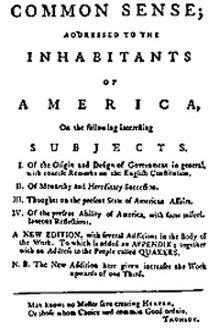Genre Philosophy. Page - 19

ypotheses are real facts with some of their circumstances exaggerated or omitted 255
3. Some of the first principles of geometry are axioms, and these are not hypothetical 256
4. --but are experimental truths 258
5. An objection answered 261
6. Dr. Whewell's opinions on axioms examined 264
CHAPTER VI.
The same Subject continued.
Sec. 1. All deductive sciences are inductive 281
2. The propositions of the science of number are not verbal, but generalizations from experience 284
3. In what sense hypothetical 289
4. The characteristic property of demonstrative science is to be hypothetical 290
5. Definition of demonstrative evidence 292
CHAPTER VII.
Examination of some Opinions opposed to the preceding doctrines.
Sec. 1. Doctrine of the Universal Postulate 294
2. The test of inconceivability does not

object that causeth them, but so many several motions of the matter, by which it presseth our organs diversly. Neither in us that are pressed, are they anything els, but divers motions; (for motion, produceth nothing but motion.) But their apparence to us is Fancy, the same waking, that dreaming. And as pressing, rubbing, or striking the Eye, makes us fancy a light; and pressing the Eare, produceth a dinne; so do the bodies also we see, or hear, produce the same by their strong, though unobserved action, For if those Colours, and Sounds, were in the Bodies, or Objects that cause them, they could not bee severed from them, as by glasses, and in Ecchoes by reflection, wee see they are; where we know the thing we see, is in one place; the apparence, in another. And though at some certain distance, the reall, and very object seem invested with the fancy it begets in us; Yet still the object is one thing, the image or fancy is another. So that Sense in all cases, is nothing els but originall fancy, caused (as I h

age to the door of her private retreat, and was about to knock when he was deterred by the words which he could clearly hear.
Chapter III
FRANCIS HAMMERTON, if we are to think of him by his true name, had not considered the probability that Mrs. Benson might not be the sole occupant of the house, his mind having been concentrated upon aspects of his position which threatened more definite hazards.
Actually, the woman whose voice he heard was a next-door neighbour, Miss Janet Brown, who had looked in with no further purpose than to return a borrowed flat-iron. But it happened that she was already informed of the exciting incident of the afternoon, and when Mrs. Benson detained her for a cup of the tea which could be cheaply obtained by adding fresh water to the leaves in the lodger's teapot, and naturally mentioned the good fortune which had walked in less than two hours before Janet was quick to see the connection bet

of the slaves, or to march to Mexico--see if I would go"; and yet these very men have each, directly by their allegiance, and so indirectly, at least, by their money, furnished a substitute. The soldier is applauded who refuses to serve in an unjust war by those who do not refuse to sustain the unjust government which makes the war; is applauded by those whose own act and authority he disregards and sets at naught; as if the state were penitent to that degree that it hired one to scourge it while it sinned, but not to that degree that it left off sinning for a moment. Thus, under the name of Order and Civil Government, we are all made at last to pay homage to and support our own meanness. After the first blush of sin comes its indifference; and from immoral it becomes, as it were, unmoral, and not quite unnecessary to that life which we have made.
The broadest and most prevalent error requires the most disinterested virtue to sustain it. The slight reproach to which the virtue of patriotism is commonly

eth headlong.
Sa'dí.
43.
A man who has learnt little grows old like an ox: his flesh grows, but his knowledge does not grow.
Dhammapada.
44.
Unsullied poverty is always happy, while impure wealth brings with it many sorrows.
Chinese.
45.
Both white and black acknowledge women's sway, So much the better and the wiser too, Deeming it most convenient to obey, Or possibly they might their folly rue.[6]
Persian.
[6] Cf. Pope:
Would men but follow what the sex advise, All things would prosper, all the world grow wise.
46.
We are never so much disposed to quarrel with others as when we are dissatisfied with ourselves.
Hazlitt.
47.
No one is more profoundly sad than he who laughs too much.
Richter.
48.
The heaven that rolls around cries aloud to you while it displays its eternal beauties, and yet your eyes are fixed upo

by the combination, they have an undoubted privilege to inquire into the pretensions of both, and equally to reject the usurpations of either.
In the following sheets, the author hath studiously avoided every thing which is personal among ourselves. Compliments as well as censure to individuals make no part thereof. The wise, and the worthy, need not the triumph of a pamphlet; and those whose sentiments are injudicious, or unfriendly, will cease of themselves unless too much pains are bestowed upon their conversion.
The cause of America is in a great measure the cause of all mankind. Many circumstances have, and will arise, which are not local, but universal, and through which the principles of all Lovers of Mankind are affected, and in the Event of which, their Affections are interested. The laying of a Country desolate with Fire and Sword, declaring War against the natural rights of all Mankind, and extirpating the Defenders thereof from the Face of the Earth, is the Concern of every Man to wh

fully exhausted in the Critique, it is necessary that, in the proposed work, the same should be the case with their analysis. But this will be rather an amusement than a labour.
[*Footnote: In contradistinction to the Metaphysic of Ethics. This work was never published.]
PREFACE TO THE SECOND EDITION, 1787
Whether the treatment of that portion of our knowledge which lies within the province of pure reason advances with that undeviating certainty which characterizes the progress of science, we shall be at no loss to determine. If we find those who are engaged in metaphysical pursuits, unable to come to an understanding as to the method which they ought to follow; if we find them, after the most elaborate preparations, invariably brought to a stand before the goal is reached, and compelled to retrace their steps and strike into fresh paths, we may then feel quite sure that they are far from having attained to the certainty of scientific progress and may rather be said to be merely gro

development. A few easily-mastered principles which give you the key to the whole of this wonderful subject.
LESSON XVII PERSONAL PSYCHIC INFLUENCE OVER OTHERS Psychic Influence exerted over others, when in their presence. Different degrees of the influence. Possession of this power by Alexander the Great, Napoleon Bonaparte, Julius Caesar, and other great leaders of men. The ability to influence others is a sure sign of the possession of this psychic power. The Three Underlying Principles of Psychic Influence. The importance of strong desire to influence and exert power. The importance of clear, positive mental pictures of what effect you wish to produce. The importance of the firm concentration of your mind on the subject. The creation of a positive psychic atmosphere. The Positive Psychic Aura. How to project your Psychic Power. The Psychic Struggle between two persons. How to handle yourself in such conflicts of Psychic Power. How to Neutralize the Psychic Power of others, and thus disarm them. The

calling. He was working as atailor's apprentice near Bonchurch, in the Isle of Wight, when thenews flew through the village that a squadron of men-of-war wassailing off the island. He sprang from the shopboard, and ran downwith his comrades to the beach, to gaze upon the glorious sight.The boy was suddenly inflamed with the ambition to be a sailor; andspringing into a boat, he rowed off to the squadron, gained theadmiral's ship, and was accepted as a volunteer. Years after, hereturned to his native village full of honours, and dined off baconand eggs in the cottage where he had worked as an apprentice. Butthe greatest tailor of all is unquestionably Andrew Johnson, thepresent President of the United States--a man of extraordinaryforce of character and vigour of intellect. In his great speech atWashington, when describing himself as having begun his politicalcareer as an alderman, and run through all the branches of thelegislature, a voice in the crowd cried, "From a tailor up." Itwas ch
